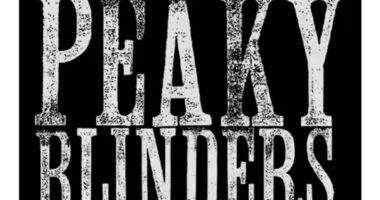HE has been entertaining millions of listeners on the radio for over a decade – but a shock phone call live on air left chatty Chris Stark speechless.
The Capital Breakfast host, who’d just been told he had testicular cancer, felt an “out of body experience” as he headed back into the studio moments later.

4

4
In an emotional interview with The Sun, 38-year-old Chris speaks for the first time about the guilt he felt telling his wife about his diagnosis – and how he broke the news to his children.
The dad-of-two said: “I don’t care about what happens to me. I care about their reaction to what happens to me. I didn’t want them to be frightened.”
Chris, 38, suffered a sleepless night the evening before his scheduled 9am call with the doctor, three hours into his weekday radio show.
The urgency of his phone appointment, just a day after having an ultrasound, gave Chris a bad feeling – but he’d gone to bed without sharing his fears with his wife, Ria.
Chris said: “I worried something bad is potentially happening here because why would a doctor need to phone you first thing in the morning. That never happens, right?
“I didn’t tell my wife that evening. I remember lying in bed just thinking that I wanted her to have one more night’s sleep before having to deal with whatever came next.
“But after being told the results, I left work that day and knew I had to tell my wife – and that was potentially the hardest part of all of this.
“I didn’t want to frighten her first and foremost. I wanted to tell her what I had without saying ‘I have cancer’. It was really tough. I didn’t want her to be scared.
“Now looking back, I wish I had stopped trying to overprotect her because telling her was the best thing I could have done. I felt empowered that I could take this on.”
Hours before telling his wife, Chris had kept the news secret from his co-hosts Jordan North and Siân Welby after taking the unusual step to leave the studio mid-show.
“It was such a surreal moment because I didn’t tell anyone on my team.
“They would have known something was up, but they knew enough that it was unusual enough not to ask any questions.
“Being in the studio after that call felt like an ‘out of body’ situation because you suddenly start overthinking every eventuality at the same time as we’re playing Sabrina Carpenter on the radio.
“The studio has always been my safe space. You can leave a lot of stuff at the door – it’s almost like an escape, so that was a really hard one to take.”

4
The 4 early warning signs of testicular cancer
ALMOST 2,500 new cases of testicular cancer are recorded every year in the UK.
There are around 65 deaths, according to Cancer Research UK.
As with all types of cancer, the earlier it’s caught, the better.
The most common symptom of testicular cancer is a lump or swelling in your testicle.
But the full list of early red flags includes:
- A lump or swelling in part of one testicle (it can be as small as a pea but may be much larger)
- A testicle that gets bigger
- A heavy scrotum (it may also feel firmer or harder)
- Discomfort or a sharp pain in your testicle or scrotum
If the cancer has spread, you may also experience back pain or a dull ache in your lower stomach.
Some people have a cough, difficulty breathing, problems swallowing, a swelling in the chest, and weight loss.
Treatment depends on several factors, including your cancer stage and grade.
Most people have surgery to remove their testicle as their first treatment.
After that, some need further chemotherapy or radiotherapy.
The next few weeks were a blur, admits Chris, who says he was bombarded with information and quickly scheduled for surgery to remove the cancerous testicle.
He then had preventative chemotherapy to ensure all the toxic cells had been removed.
“It made me feel really low”, says Chris, who used to work on BBC Radio One with Scott Mills.
“I had one day when I was crying for no reason. It was really unlike me. I didn’t feel myself.
“The chemo sort of slows your processing down. I wouldn’t be able to name things and sometimes I couldn’t pick up a glass or I’d just stare at it for ages.
Chris’s surgery and chemo journey
“You’re in a weird head space with what you’ve just been through and the medication from after the surgery, but I was desperate to get back to work. I went back a couple of days later.”
Despite having made a full recovery, Chris has honestly opened up about the emotional side effects of what he’s been through – admitting he is carrying guilt around about not getting himself checked sooner.
Unconcerned, he mentioned pain in his testicle to the doctor at the end of a routine appointment – and it’s likely he has been carrying around the disease for 18 months.
One in 220 males in the UK will be diagnosed with testicular cancer in their lifetime, with men aged between 20 and 40 being the most likely to get it.
“Maybe I have punished myself a bit too much on this, but I feel like my ignorance on this could have put my family in jeopardy,” says Chris.
“I don’t care about what happens to me. I care about their reaction to what happens to me.
“I’m always mindful of that, even when I do silly embarrassing things on the radio.
‘I should have caught it earlier’
“They’re the most important people to me, my kids and my wife. And I just really hate how something so simple, like checking myself, could have been avoided.
“I feel like an idiot and maybe I’m being a bit harsh on myself but it’s the truth.
“I feel like I wish I’d found this even earlier. This could have had a major, major impact on my life and my family’s life.
“I’m just so pleased on a personal level that I’m OK and we as a family will get through this.
“It’s just a massive blessing and I feel really lucky that I found it early before it spread.”
Alongside his supportive wife, Chris has been confiding in his ten-year-old daughter about his health and hopes his son, four, will grow up being confident to get himself checked.
Chris – who presents That Peter Crouch Podcast – added: “It’s a hard conversation on a heavy topic, but I’ve tried to be honest with my daughter throughout this.
“I think it’s important not to shy away from talking about anything that’s challenging, health-wise, with her.”
“She’s incredibly resilient and she just asks really direct question like, ‘are you going to be OK? What do you need to do now?’ and then she’ll ask whether it’s OK if she can have an ice cream and it’s back to normal.”
Thankfully, because Chris caught his cancer early, he has the chance to enjoy endless amounts of ice cream with his daughter for decades to come.

4








